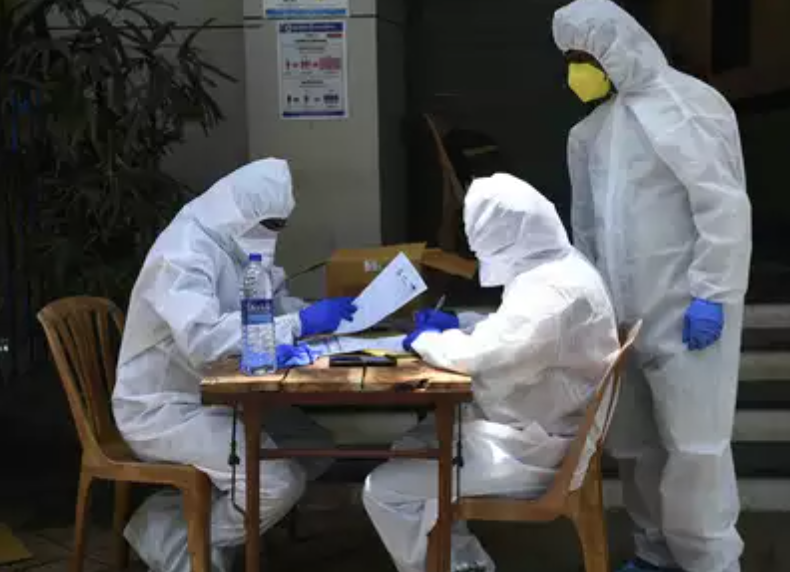- Industry
- 2 min read
Managing hotspots is key to ‘blunted peak’: AIIMS director
AIIMS director Dr Randeep Guleria said on Thursday that if the Covid-19 hotspots are managed properly, India may witness a ‘blunted peak’. “It means that we will not have huge spike as has been witnessed in the West. The peak may be more flat with cases subsequently coming down over the next few weeks,” Dr Guleria said.
“It means that we will not have huge spike as has been witnessed in the West. The peak may be more flat with cases subsequently coming down over the next few weeks,” Dr Guleria said.
The US and the UK, where new Covid-19 cases are on the decline, had witnessed sharp spike with over 10,000 cases being reported daily. India has so far witnessed maximum 3,600 new cases in a single day. The AIIMS director said aggressive action in hotspots and community participation can help limit the rise in cases to 3,000 to 4,000 only.
“There have been many predictions based on mathematical modelling. Some of them suggested the peak might come by April-end. They were proved wrong. Some studies suggested the peak would come in May. It seems highly unlikely now. Similarly, some studies suggested peak could occur in June-July. I don’t know if that would prove to be true either,” he added.
According to Dr Guleria, modelling data to predict the peak of Covid-19 often doesn’t take variables into considerations.
“Due to the lockdown, the growth in number of Covid-19 cases has been slow. Also, most new cases are being recorded from hotspots. If they are managed properly, we may see a blunted peak,” the AIIMS director told TOI.
He was clarifying his remarks to a news agency that seemed to suggest that the peak could come in June and July in India leading to concern among public. It was one of the most trending topics on social media as well.
Dr Guleria said the number of Covid-19 patients requiring ICU support in India is approximately one per cent of all cases, which is very low. “Somehow we are fighting the disease in a much better way compared with the affected population in other countries,” he added.



COMMENTS
All Comments
By commenting, you agree to the Prohibited Content Policy
PostBy commenting, you agree to the Prohibited Content Policy
PostFind this Comment Offensive?
Choose your reason below and click on the submit button. This will alert our moderators to take actions